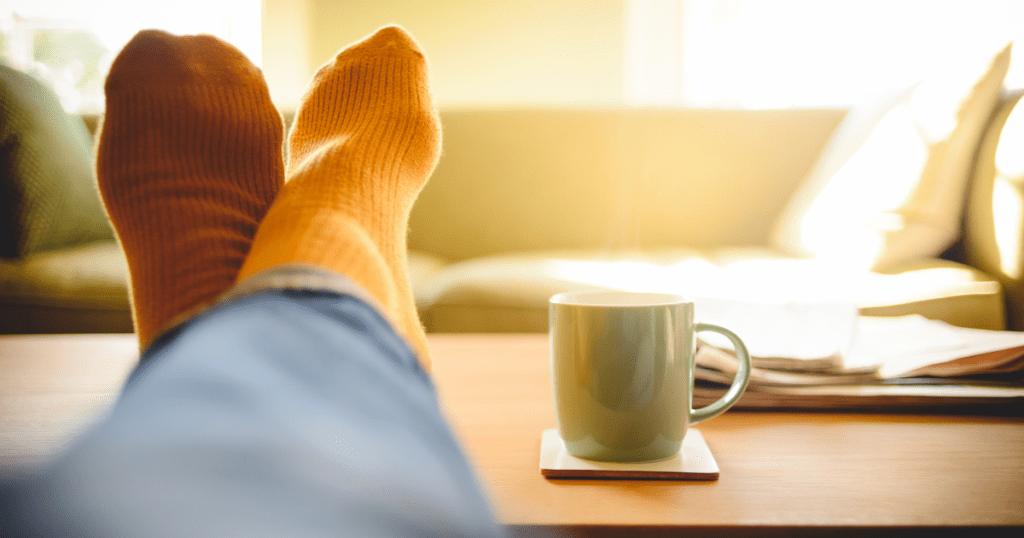
The term’s nearly done. You’re exhausted. Your brain’s gone fuzzy. Even getting to the end of this sentence feels like a mission.
That’s not just you being dramatic. Teaching is full-on. You’ve been showing up every single day, keeping a classroom of kids learning, moving, thinking, and questioning. You’ve been battling reports, lesson plans, marking, parent emails, meetings, and more. And now, finally, there’s a break in sight.
So here’s your reminder: you don’t have to do anything these school holidays. No projects. No prepping. No catching up on ‘just a bit’ of schoolwork. Nothing. Doing nothing isn’t lazy. It’s essential.
And just so you know, you’re hearing this from people who get it. At MarkSmart, we’re Aussie teachers too. In this article, we discuss the reality of teaching and give you full permission to slow down. Properly. No guilt allowed here.
The Reality of Teaching
Teaching is hard work. You don’t just show up and talk at a whiteboard. You’re managing behaviour, adjusting lessons on the fly, supporting kids who are struggling (sometimes in ways that have nothing to do with school), and ticking off 27 admin tasks a day.
You’re running on empty half the time, and still expected to show up smiling and energetic. That takes a toll. Big time.
A report by the Australian Institute for Teaching and School Leadership found that teachers work an average of 54 hours a week. Most of that is outside classroom time. Weekends. Nights. School holidays.
And when the term ends, what happens? People ask, ‘Looking forward to the break?’ like you’re about to go on an exotic holiday. But the truth is, holidays come with pressure too. The pressure to plan. To prepare. To ‘get on top of things’.
You don’t need more things to do. You need rest.
Rest Is Not Laziness
There’s a difference between real rest and that fake rest where you’re lying on the couch but thinking about all the stuff you should be doing. That guilty feeling that creeps in when you try to chill? That’s not helpful. That’s just your tired brain lying to you.
Doing nothing is actually good for your nervous system. It gives your body a chance to recover. Not just physically, but mentally and emotionally, too.
Burnout doesn’t happen because you’re lazy. It happens because you push through, over and over, without stopping. Rest is how you stop that from happening. It’s not optional. It’s not a luxury. It’s basic maintenance. Like brushing your teeth. Except it takes longer, and it feels way better.

The Productivity of ‘Nothing’
Doing nothing is actually one of the most productive things you can do.
Think about your phone. If you never plug it in, it dies. If you keep every app running at once, it slows down, glitches, or crashes. The same goes for your brain. Rest isn’t slacking off. It’s recharging so you don’t completely burn out.
A study found that chronic stress physically shrinks the part of your brain responsible for memory and learning. So, if you’re pushing through the holidays without proper rest, you’re not doing yourself or your students any favours.
Another study showed that teachers’ stress levels are among the highest of all Australian professionals, with over 70% of teachers reporting burnout symptoms. Rest isn’t a nice idea. It’s urgent.
Ever noticed how your best ideas pop up in the shower, or on a walk, or when you’re lying in bed doing absolutely nothing? That’s because your brain does some of its best work when it’s not focused. It’s called the default mode network (DMN). When you’re resting, daydreaming, or even staring out the window, your DMN kicks in. That’s the part of your brain responsible for creativity, problem-solving, and connecting big ideas.
Unstructured time matters. Not time crammed with errands or guilt-ridden ‘relaxation’ where you feel bad for not doing more. We’re talking about real space. The kind where you let your brain wander, or stop completely. That’s when long-term thinking shows up. The fresh ideas. The mental reset that stops you turning into a (grumpy) robot by week two of next term.
So no, doing nothing isn’t a waste. It’s preparation. It’s brain fuel. It’s what helps you stay in this job for the long haul, without completely losing your mind.
Give Yourself Permission
So here it is. Your sign. Your full permission slip. From one teacher to another: take the break. You don’t have to finish your to-do list before you sit down. You can just… stop. Right now. Even if the laundry’s not done. Even if next term’s planner is still blank. Even if your house is a mess and you swore you’d clean it.
What do you actually need? A nap? A walk without anyone talking to you? Ten hours of watching trash TV in bed with snacks? Cool. Do that.
A few ideas, in case your brain’s forgotten what nothing looks like:
- Lying on the floor in the sun, like a cat
- Making a cup of tea and drinking it while it’s still hot
- Doing that weird jigsaw puzzle your mum gave you three Christmases ago
- Watching clouds
- Sitting still, phone down, brain off
This Is Your Sign to Stop
Doing nothing is sometimes the most radical, healthy thing you can do. Especially in a job where your whole identity can start to wrap around being the ‘good’ teacher. The one who always goes above and beyond. But you don’t get a medal for burning out. You just get really, really tired.
The only way to come back stronger next term is to actually rest now, properly, and guilt-free.
When you’re ready to think about next term, we’ll be here to help. Our code-based marking software can cut your marking time by up to 40%. That’s hours back, every week. Hours you can spend doing… well, nothing. Or something. Whatever you want.
We know the holidays aren’t always a full break. There’s planning. There’s prep. There might be a pile of marking staring at you from across the room. But once that’s done? Give yourself permission to stop. To rest. To do absolutely nothing for a while, without guilt.
